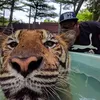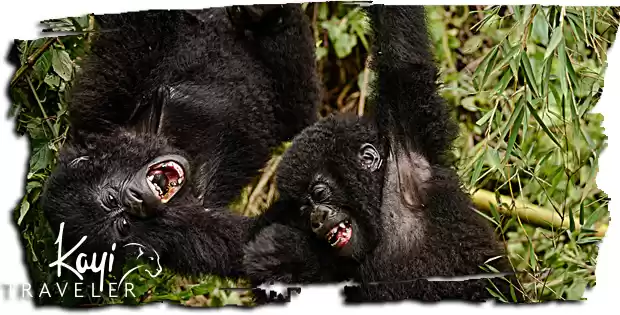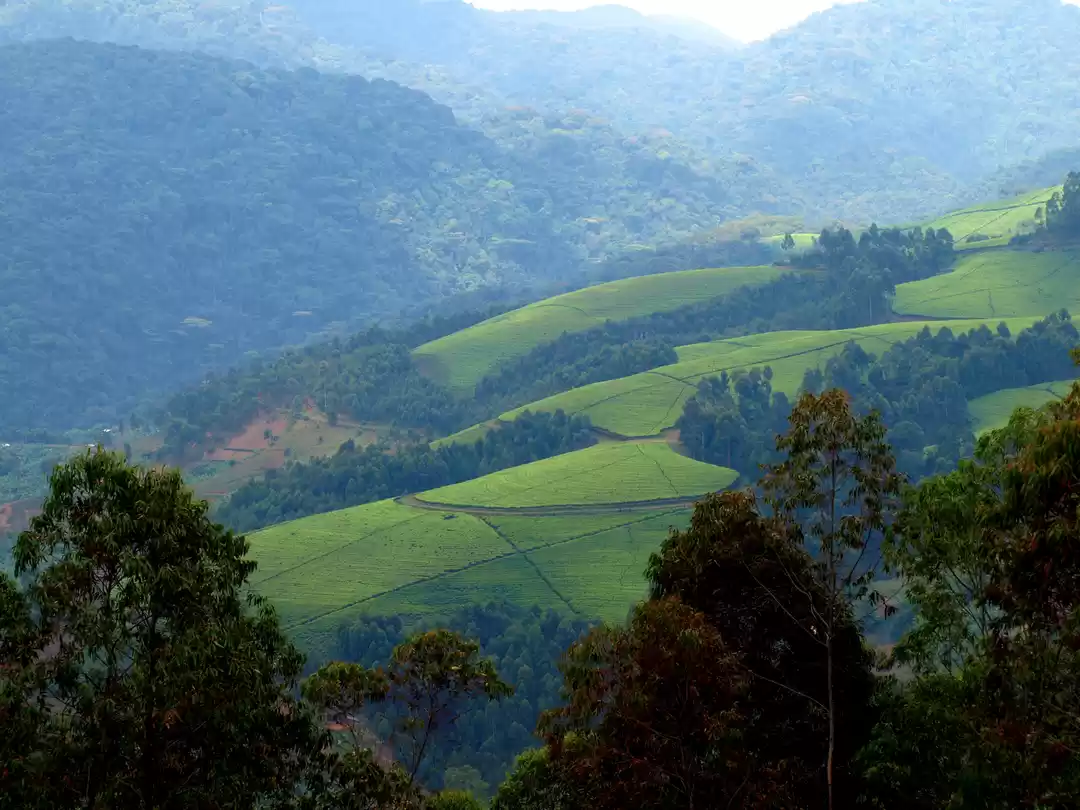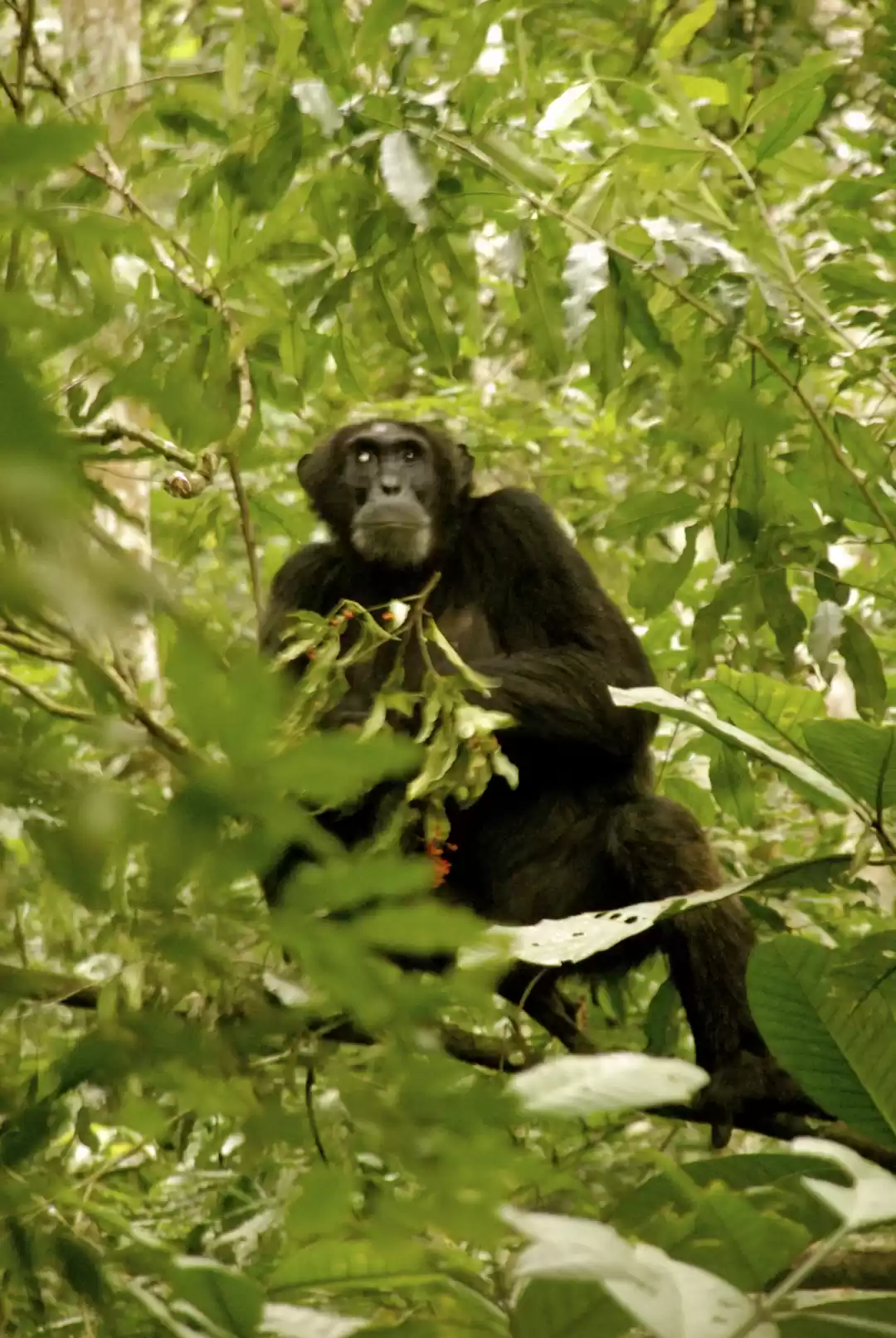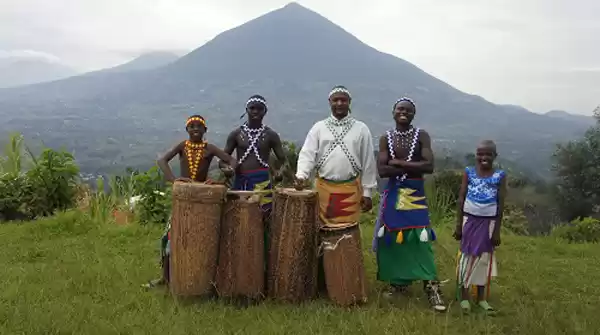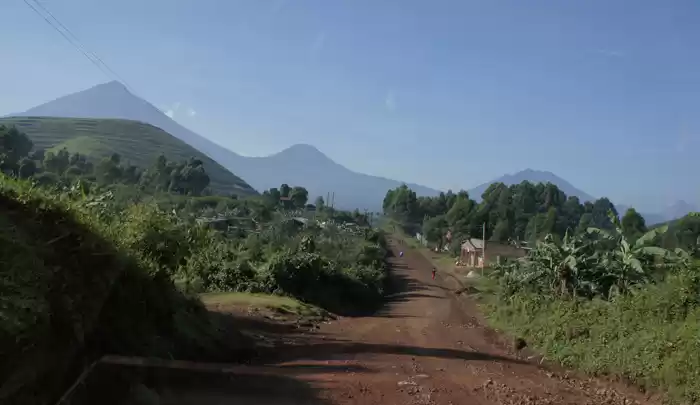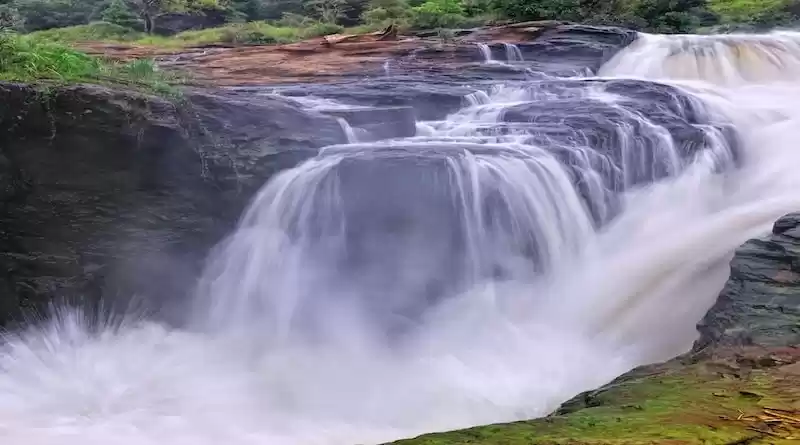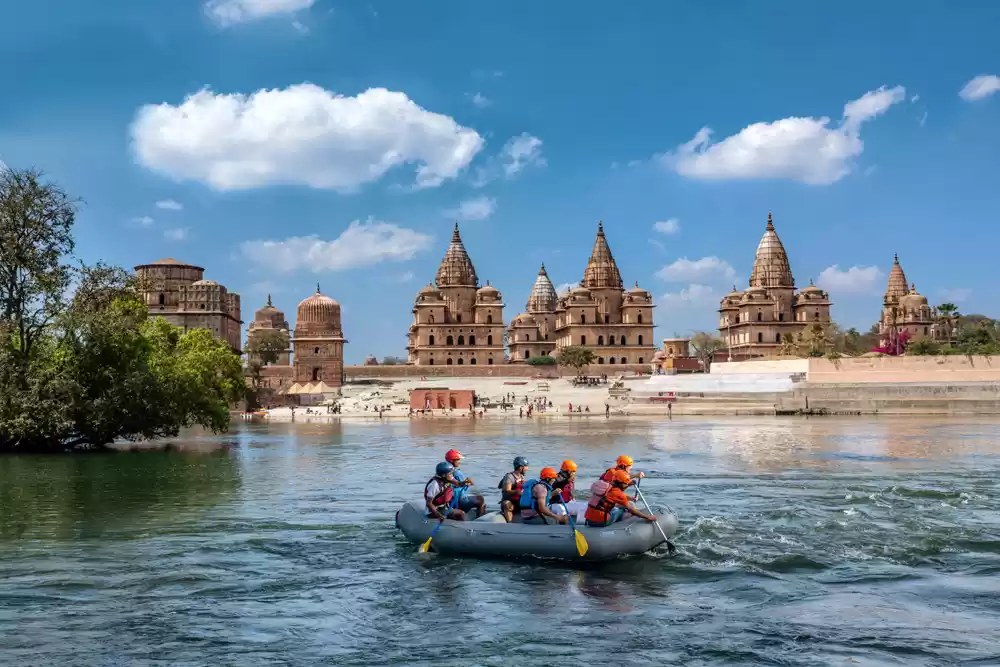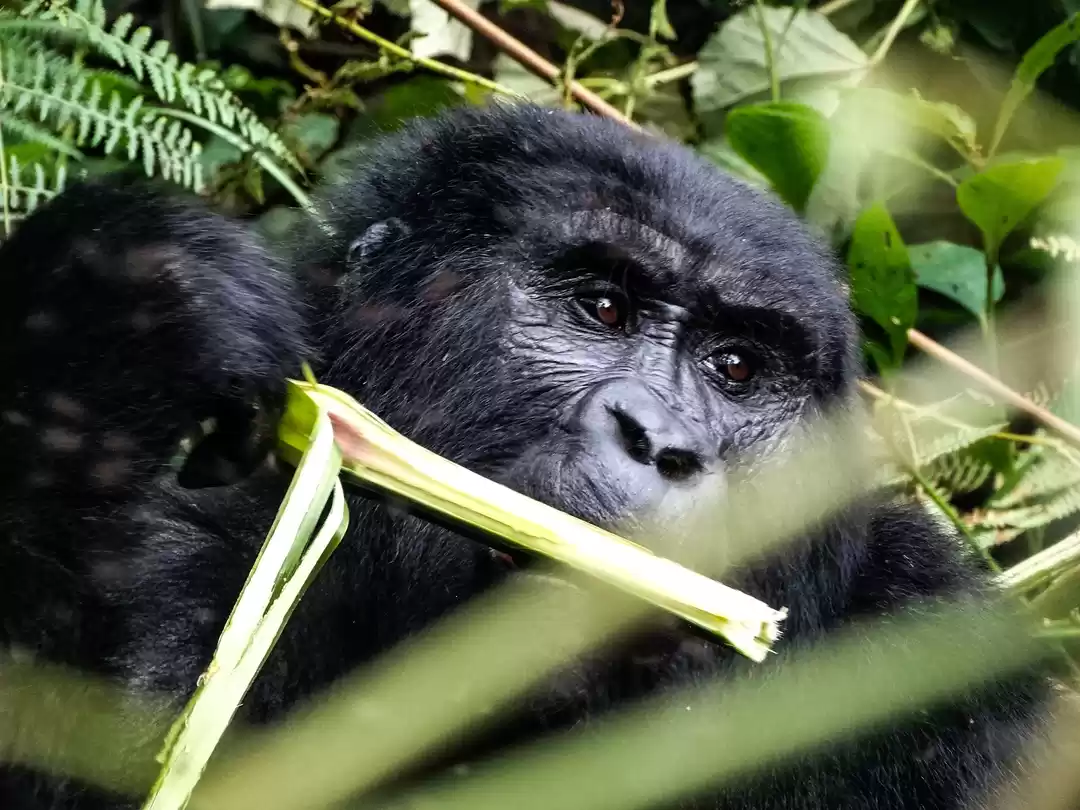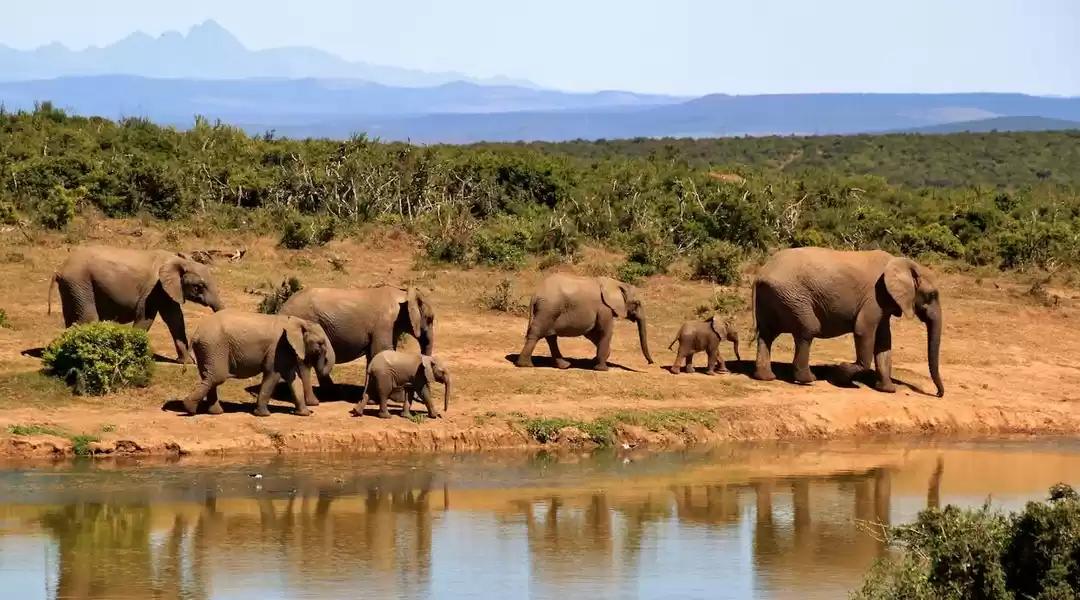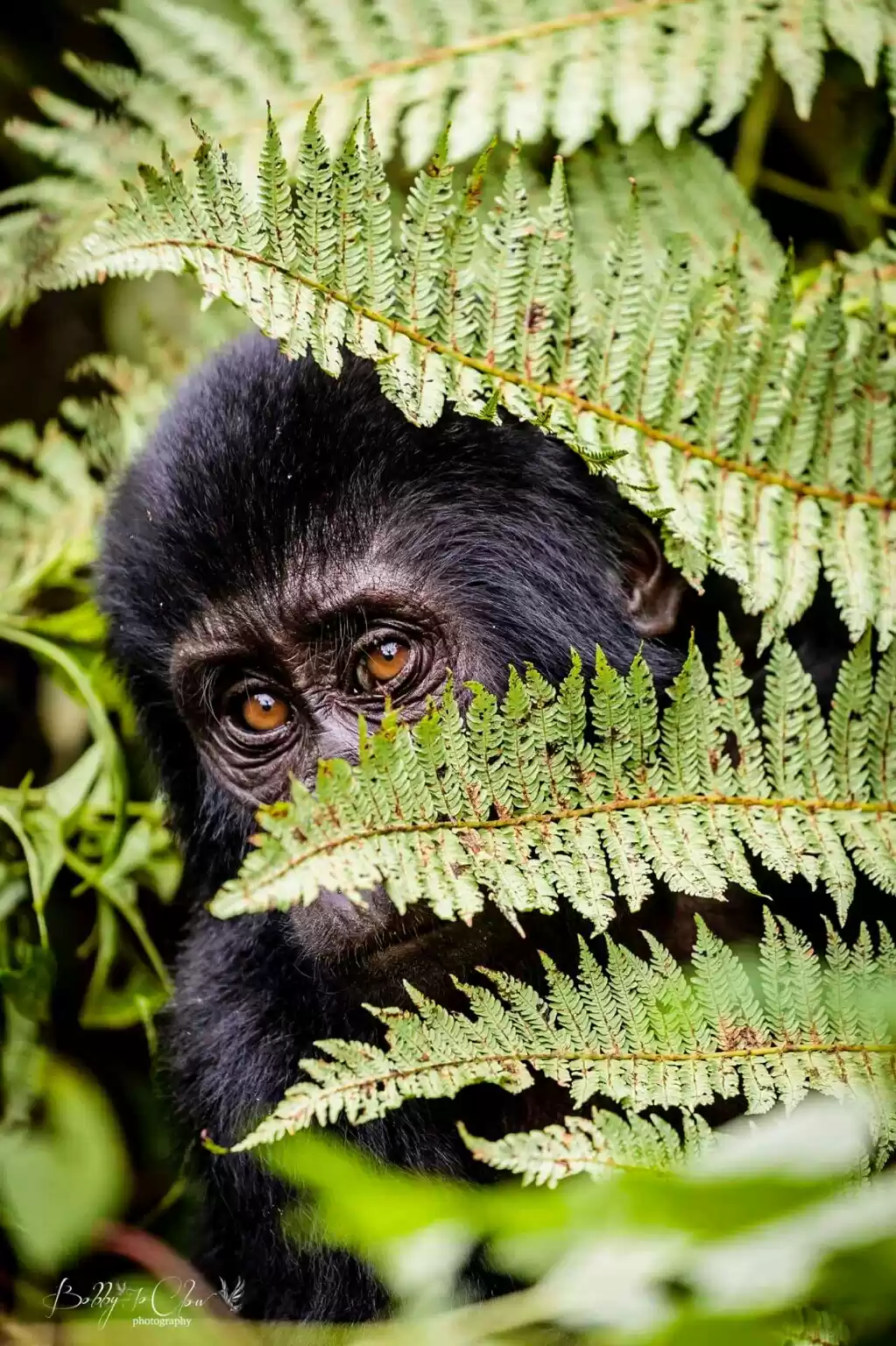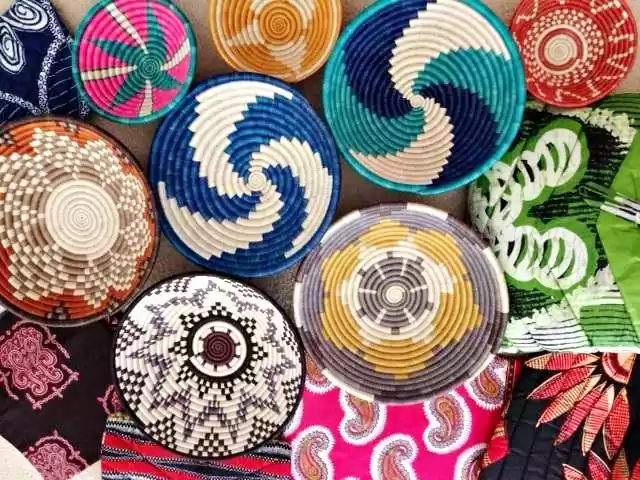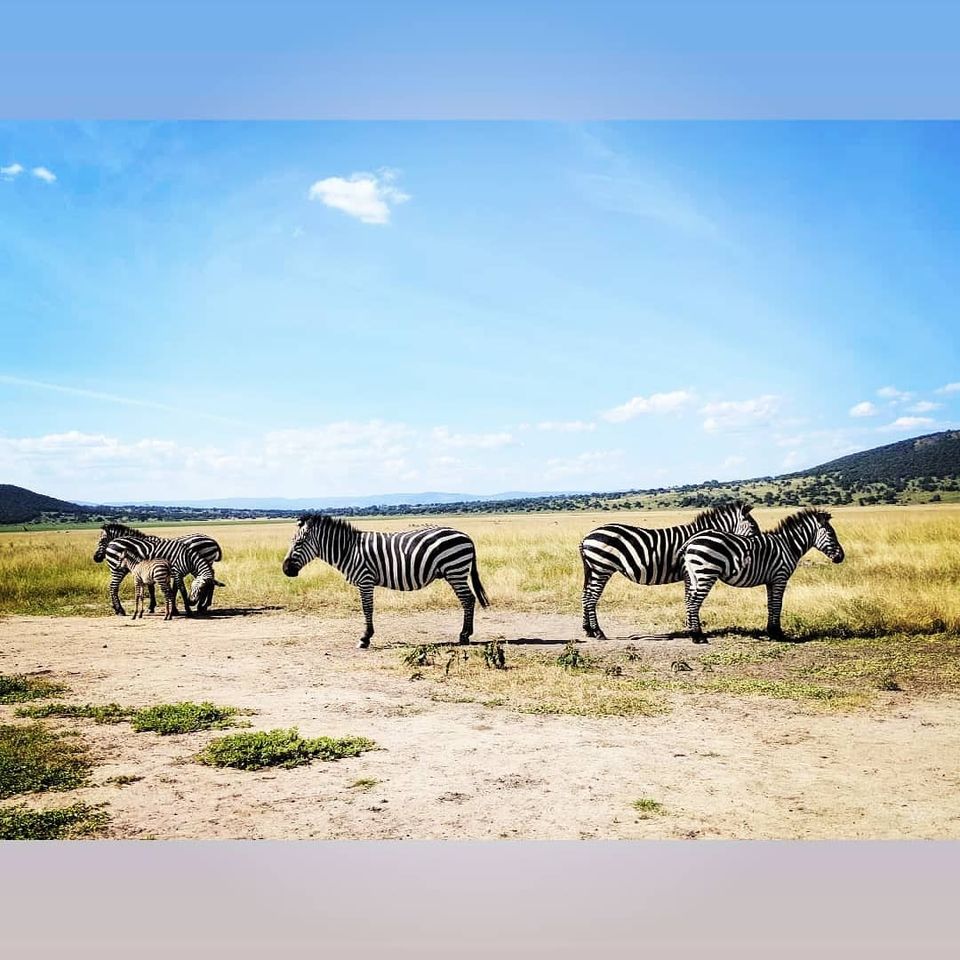
After satiating my wanderlust with a life changing trip to Thailand, I planned for months and decided to go to Rwanda.
Rwanda, a small country in Central Africa is the ninth safest place in the world!
“Bananas are to Rwanda, what rice paddies are to Vietnam.” - Some random Rwandan
Africa as a continent has always intrigued me but the security concerns were always a barrier to even think of going somewhere in Africa. In a time where Indians don’t know more than three countries which exist in Africa, I decided to go to one which half of them couldn’t even pronounce.
“Oh, you are going to Uganda!” - Random Indian friend
--------------------------------------------------------------
Chapter 1: Kigali
Kigali is the capital of Rwanda and it is the largest and the most populated city in the country. Companies from around the world have started setting up their base in Kigali as the government has come up with a policy for ease of doing business. One can register her company in Rwanda in just two days plus there are tax concessions given to foreign companies.
Kigali has many neighborhoods, each with a different feel of the city. Kiyovu, the center of town. It’s the place where you can find all the different knick-knacks you want and need, including office supplies, automotive supplies, etc. There’s a street peppered with foreign exchange bureaus, and the rate is one of the best you can find (better than the bank rates). Kacyiru, the ministry area. This is where the President’s office is located, as well as most of the ministries (the Ministry of Health is in Kiyovu). Kimihurura, the place where the ministers live. In fact, the central road in Kimihurura is called Minister’s Road, or la Rue des Ministres, which is a wide boulevard. Nyarutarama, the ritzy neighborhood. Everything here reeks of new wealth. The houses are unbelievably large (though frankly, their interior layouts are sometimes a bit awkward and illogical) with columns, marble, and the works. Some even have swimming pools.
Nyabugogo, the main bus station. The most chaotic area of Kigali! Services such as power and water are largely undependable but people flock here in large numbers to travel to Dar es Salaam, Kampala, Nairobi or somewhere within Rwanda.

I was staying at Kabeza! This place is somewhere better than a ghetto but less ritzy. The perfect feel of Rwanda can be felt in this neighborhood. I was tucked in an Airbnb. It was a huge house with proper security in place and the host, Noah was such a darling. The local kids would surround me every time I came home just to play or ask for food. When in such a neighborhood, you do get a lot of stares if you aren’t black. But the people are very nice to you and the hospitality is appreciable. Everything is cheap in Rwanda be it the food, drinks or your daily groceries. The only expensive things are the safaris and Gorilla tracking which I will talk about soon.
Safety is no concern in Kigali. With the kind of neighborhood I described, I have come home at 3, sometimes 4 AM in the morning with no problem whatsoever.
Party! Party! Party! Rawandans definitely know how to party. Hit one of the clubs in Remera on a Saturday night and you’ll see the locals partying till 6 in the morning. Also, being an Indian you’ll get a lot of attention from the local ladies since Indians are really rich in Rwanda and the ladies love straight hair. Refrain from indulging in prostitution as AIDS is a problem in Africa, even if every prostitute actually carries a paper with her saying that she’s HIV negative.
Tourist attractions in Kigali include the famous Convention Center and the Genocide Memorial. The Convention Center was built in 2016 and houses a 5-star hotel, Radisson Blu, a conference center, an IT park and a museum.
The Kigali Genocide Memorial was built to commemorate the 1994 genocide against the Tutsis. It is the final resting place for more than 250,000 victims of the genocide and honors the memory of more than a million Rwandans killed in 1994. It depicts stories of some children at the time — who have seen their entire families murdered by militia groups and even neighbors. Men hacked with machetes like cattle at the butcher. Women forced to kill their husbands before being raped and killed themselves, children clubbed to death and so on. I made one such friend who was adopted by a Ugandan family after he lost his parents during the genocide. Yes, Rwanda has been to hell and back and this has been very well explained at the Genocide Memorial. There are more such memorials around the country but the one in Kigali is the biggest.
--------------------------------------------------------------
Chapter 2: Kibuye

A two and a half hour drive from Nyabugogo Bus Terminal takes you to one of the African Great Lakes, Lake Kivu. It lies on the border of Democratic Rebublic of Congo and Rwanda. Lake Kivu is approximately 90 km (56 mi) long and 50 km (31 mi) at its widest.
There are two lake towns in Rwanda which are famous among the backpackers viz. Kibuye (Karongi) and Gisenyi (Rubavu). Kibuye is nearer to Kigali and one can take a Capital Express bus from Nyabugogo Bus Terminal to reach Kibuye. The frequency of the buses is good. The earliest one leaves from Kigali at 8:00 AM and the last bus from Kibuye leaves at 5:00 PM.
Kibuye also has one of the most famous hotel to stay at. Home Saint Jean, is perched high above Lake Kivu with fantastic views. It’s located just behind a huge church a short 10 to 15 minute walk from where the Capital Express bus drops you off. It isn’t one of the most luxurious hotels, but is surely a hotel with a great view and a laid back feel to it. For people who plan to stay in -Rwanda for long, can stay in Kibuye for at least three days and soak in the relaxed vibes around Kivu.
From Kibuye you can take boat trips on Lake Kivu to nearby islands: Napoleon Island with its colony of fruit bats and Amahoro Island (aptly known as “One bar island” because all it has on it is one bar).
It’s also possible to visit Kibuye’s genocide memorial church, with brightly colored stained-glass windows, in a quiet location on a hill above Lake Kivu.
Travelers often choose to stay at both Kibuye and Gisenyi to get the country side feel of Rwanda but due to lack of time I spent just one night at Kibuye. Gisenyi on the other hand is more famous with the people of Rwanda and travelers. Gisenyi (also referred to by its new name Rubavu) is a large town spread over several hills on the northern edge of Lake Kivu. Once a colonial beach resort of note, Gisenyi’s waterfront is lined with fading old mansions, some decent hotels including some of international standard, and trendy bars on the lake shore, ideal for a sundowner cocktail. There is a pleasant public beach on Gisenyi’s lake shore but it can get quite busy, particularly at weekends. Some hotels have private beaches and water sport options. Gisenyi is close to the DRC border so it’s wise to check the FCO’s travel advice before visiting.
--------------------------------------------------------------
Chapter 3: Akagera National Park

My trip to Akagera happened by accident. Going on a safari hadn’t been on my itinerary after receiving expensive quotations like $450 for a night and two days in Akagera. But as chance would have it, I met Everest Bahati, at a bar in Kigali and he happened to be the owner of a safari company. I told him about my budget constraints and he said, we could do the trip for just $200! So here we were, an Indian (Me), two Americans (Jennifer and John) and a Rwandan (Everest) set out to explore Akagera National Park.
The best time to visit Akagera National Park is during the dry season. From June to September, you’ll have little chance of rain and some of the best wildlife spotting opportunities.
We set out to visit Akagera before the sun rise as it is advised to reach the park early to get most out of your game drive. Park is open from 6:00 AM till 6:00 PM. A well built road along scenic landscapes of Rwanda’s countryside filled with Banana plantations and small hamlets took us around three hours to reach the entrance of Akagera National Park. Some good snacks were available to hog at the main office and that’s exactly the place where one could hire a guide for the day.
Akagera National Park is a two-hour drive from Kigali. Established in 1934, the parks wildlife population was devastated after the Rwandan genocide when returning refugees clashed with the animals. Once home to over 200 lions, the population was quickly wiped out by angry cattle herders. Today, the 1,122 square kilometers has recovered. A new perimeter fence has been erected, and anti-poaching strategies have helped the wildlife populations to grow. In fact, Rwanda reintroduced lions back into the park in 2015 that have since flourished in their new home. And this year, black rhinos who had been missing from the park since 2007, returned when 20 were sent up from South Africa. Agakera is now the biggest protected wetland in Africa and Rwanda’s only Big 5 national park.

Since, we had planned to camp inside the national park we didn’t have to worry about leaving the park in the evening. Accommodation inside Akagera is expensive. There are two game lodges (Ruzizi Tented Lodge and Akagera Game Lodge) and three campsites (Shakani, Mutamba and Muyumba).
Camping at one of these campsites is the cheapest option to spend a night in Akagera. One can get her own camping gear or rent it from one of the shops in Kigali. The campsite costs $25 per night and the camping gear costs $20. We were staying at Muyumba campsite. This place overlooks two beautiful lakes, Lake Ihema and Lake Shakani as well as Tanzania. It’s also the closest campsite to the park entrance. Just for Rwf 3000 you can use the pool at Akagera Game Lodge (not very far from Muyumba). Me being a total cheapskate went to Akagera Game Lodge with the boys where we used the pool and took a shower before heading to the campsite.

On our first game drive we saw many animals including herds of Hippos, Zebras, Impalas, Waterbucks, Topis, Elands, Crocodiles, Warthogs (Pumbaa from Timon & Pumbaa) etc. Elephants and Buffaloes are more concentrated to the north of the National Park which is marshy and not easily accessible by road. One elephant in particular is well-known across Rwanda, having been semi-habituated when younger. Mutware is the grumpy old man of Akagera — at 50 years old, he can be calm but can also be anti-social and your guide is likely to change direction should you encounter him on a drive. Lions too are concentrated towards the north of the park but since they hunt just once in four days, they don’t come out in the open rest of the time. There are approximately twenty members of the Lion family in Akagera. Leopards in Akagera are abundant and a group camping with us claimed to have spotted Leopards hunting at night.
Zebras are such serene creatures. Do you know when I actually fell in love with them? When I saw a herd in the early hours of the morning right outside our camp. Ever wished for a brunch with the Hippos? Well, it’s totally possible here at Akagera. Most of the groups take a pit stop near the lake for lunch where one would find Hippos sunbathing or frolicking in the water just a hundred meters away.
Another extremely stunning experience at Akagera was viewing the night sky. Akagera lies just below the equator and this was my first visit to any place so close to the equator. If you have ever visited the Imax Dome in Mumbai or anywhere near you, the sky at Akagera was no different. It was a half globe with stars lighting the entire sky. Me and Jennifer saw shooting stars too!
--------------------------------------------------------------
Chapter 4: We Going Gorillas
Gorilla tracking in Rwanda is often described as “life changing” and with good reason. With only an estimated 880 Gorillas left in the world, to see these gentle creatures in their natural habitat is a truly unique moment.
Gorillas make their homes in and amongs the bamboo-covered slopes of the Virunga Mountains in the Volcanoes National Park in northern Rwanda. In the Gorilla tracking tour organised by the government of Rwanda, each group is assigned a family of Gorillas and the group gets to spend an hour watching the Gorillas do their daily chores. Gorillas have a very special place in the hearts of Rwandans and every year they spend an entire day to name each new born Gorilla. This naming ceremony is a huge deal.
But, but — but, this trip will cost you an estimated $1500! The Gorilla tracking in Rwanda is a premium experience and whilst a similar trip may cost you as low as $200 or $400 while in DRC or Uganda, Rwanda ensures your safety unlike the other two countries.
I was deterred when I came to know the cost for viewing these magnificent creatures was so much and the cheapskate in me started looking for a cheaper alternative (right inside Rwanda).
The Dian Fossey Hike:
Dian Fossey alongside Jane Goodall was a pioneering primatologist. She founded the Karisoke Research Center in Rwanda in 1967 and studied the endangered mountain gorillas for 18 years. But on the 26th of December in 1985, she was brutally murdered in her secluded mountain home. Her murder remains unsolved. Upon finding her will, Dian’s body was returned to her research center where she was laid to rest alongside the gorillas she had worked tirelessly to protect.
One can buy a permit at the tourism offices in Kigali for $75. If you aren’t in Kigali, you can also buy your Dian Fossey permit from the Volcanoes National Park Headquarters in Kinigi. It’s one of the cheapest hikes you can do in the Volcanoes National Park, and the fee includes a professional guide.
If you want to MAYBE see gorillas and you can’t afford the gorilla permit, this hike is a great option.
--------------------------------------------------------------
Well, that was the recital of my experience in Rwanda. I would also like to educate with a few important things you should consider while traveling to the country.
Flights!

There are a lot of options to travel to Kigali (the only International Airport in Rwanda) from India. If you are from Mumbai, you have a great option to travel to directly to Kigali by RwandAir. It is a seven hour flight and costs around INR 35,000 round trip. There is a cheaper option if you choose to fly Ethiopian Airways, but it takes more time and halts at Addis Ababa International Airport which is infamous from luggage theft. Ethiopian Airways also departs from Delhi International Airport.
Visa For Indians
If you are an Indian citizen, you are eligible to apply for a 30-day visa for Rwanda, on arrival. All you need is your travel itinerary and $30. If you haven’t exchanged money before your trip, don’t worry. Rwandan immigration accepts Visa and MasterCard payments. I personally hate queues and applied for an e-Visa before hand. The e-Visa takes just three working days and all you need is a scanned copy of your passport and a photograph (as mentioned by the website).
Can I carry Indian Rupees?
I did that mistake. I carried a lot of Indian Rupees and none of the exchanges in town would accept my money! Finally, I visited an Indian travel agency where the owner of an Exchange was chilling. He finally agreed to exchange my INR for a decent rate! Carry USD if possible, or else use the many ATMs in Kigali to withdraw Rwandan Franks (Rwf).
Don’t drink the Tap Water
No one in Rwanda actually does. The Tap Water in Rwanda unlike India is not safe for consumption. Luckily, most hotels and hostels will have a free water dispenser that you can use. Before you travel to Rwanda, pack a reusable water bottle in your bag and fill up as you explore. If you need to buy water, it’s inexpensive and available at any of the shops and supermarkets around the country.
Rwanda Travel Vaccinations
Although, Rwanda doesn’t need an Indian to be vaccinated for Yellow Fever, India does require someone traveling to Rwanda to be vaccinated. The government has provided the list of places to get Yellow Fever vaccination, here. I got myself vaccinated at Sir J. J. Groups of Hospital, Byculla, Mumbai as it is very near to home. Trust me it was a wise choice to go to this place as I had heard from my friends who went to the Airport Health Organisation, that only a limited vaccines are available per day.
Well, if you are traveling to Rwanda and somehow missed to get your Yellow Fever Vaccine, don’t you worry. Just as you land at the Kigali International Airport, you can opt to get vaccinated for a very small amount (Rwf 3000).
Hotels and Hostels in Rwanda
Rwanda offers it’s travelers a plethora of staying options. We have already discussed about Home Saint Jean in Kibuye, Radisson blu in Kigali and the various Game Lodges in Akagera. Other than these, there are options for all budgets especially in Kigali. There are merely five hostels in Kigali and I suggest you find some more by talking to fellow travelers. Airbnb also has a lot of homes to offer in Kigali, like the one I mentioned earlier.
Food in Rwanda

Woah, woah woah! Rwandan cuisine is delicious! I’ve met a lot of Indians in Rwanda but no one had happened to eat what I ate in Rwanda! Sadly, there’s no street food so just walking down the street and browsing at steamy food carts isn’t possible. Instead you’ll have to wander into a local bar or restaurant and know what you want to order. Here is a little guide to relish the best of what Rwandan cuisine has to offer:
Brochettes:
Meat on a stick! If anyone asked me what sort of food Rwanda is known for, I would have to say the mighty brochette. It’s basically, a kebab of meat or fish. Most local places will only offer up goat (sometimes with liver or intestine thrown in for a little surprise) and some more fancy places will also do fish, beef or chicken. One thing they generally have in common is that the meat (especially goat) is cooked to oblivion. But somehow it’s super delicious.
Everyone finds their own favorite local brochette place so hit up a few bars, sample some meat sticks and see if you can find a great place of your own.
Akabenz:
“Nimish my friend, this is Akabenz. A.K.A. Benz. We love our pork as mush as we love Mercedes-Benz!”
That was Vedaste talking about Akabenz sitting at this bar called Come Again. I think Come Again is the only place in Kigali which serves this fancy pork dish with Banana French Fries and Onion Salad topped with Mayonnaise.
Nyama Choma:
…is delicious! I’m not sure if ‘Nyama Choma’ is roasted meat in general or if it refers specifically to roasted goat meat. It’s a very popular dish in Kenya and you can find it at various places around Kigali. It’s basically a leg of goat meat roasted and then chopped up into pieces. Seriously yummy.
Vegan?
Well, if you are a vegan or not fond of trying the local cuisine, don’t worry! In Kigali at least you’ll find a lot places serving good Italian, Continental and even Indian food. For my Indian folks who plan to travel to Rwanda but are concerned about the availability of Indian cuisine, I visited few places like Khaana Khazana, Blueberry (soon to be Delhi Darbar), Zaaffran and Fat Mama’s Kitchen. Out of these, Khaana Khazana was my favorite to savor some amazing Biryani while Fat Mama’s Kitchen’s vegetarian thali (combo of various Indian food like Chapati, Gravy, Rice and Daal) was a simple yet delicious Indian lunch affair.
Jumia! The Swiggy/UberEats of Rwanda:
If you don’t wish to walk down/travel all the way to a restaurant to grab a bite, you can order food from Jumia. It’s available on both iOS and Android app stores. Two things be needed from you would be a Rwandan phone number and to know where exactly you stay.
Language! Language!
Kinyarwanda is the official language of Rwanda along with French, English and Swahili. In the capital you might find a lot of people who would understand English but not in Kibuye or Gisenyi as people in rest of the country only speak Kinyarwanda. Most of the times it is a fun experience to try and explain the locals what you are trying to say but it can be a bit uncomfortable for the ladies if it’s late in the night. Hence, I would suggest you to always have a local reachable by call so that there is no confusion if you are stuck somewhere.
Local Alcohol

I always believe in drinking local alcohol as it is a great way to connect with the local drinking culture. Beer is one of the most preferred choice of alcoholic beverages in Rwanda. Rwanda’s local brand Skol is famous amongst locals and tourists equally. Interestingly, one can try most of the African beers while in Rwanda. Skol itself has six different variants, then there is Mützig and Primus (both beer brands owned by Heineken), there is Tusker from Kenya, Guinness, Carlsberg and many more beers one can find in Rwanda.
The famous South African liqueur, Amarula is also available in Rwanda for a very low cost. There are some local whiskeys like Bond 7 which one can try along with this Ugandan Gin called Waragi which comes in some insane flavors like Banana, Pineapple, Coconut and Coffee. Remember we spoke about Bananas in the beginning? How can Rwanda not have any alcohol made from Bananas? Well, they do. The famous Banana wine in Rwanda is made by the Priests from the Catholic churches in the country. They are completely organic and natural but really strong! But why won’t someone have this wine which tastes great, gets you high easily and doesn’t get you hungover the next day?
--------------------------------------------------------------
Every country has its culture, history, language and ways of doing things which a traveler can experience first hand. Rwanda is no exception. It is a country with a past full of grief and misery and a present full of promises and glory. One must visit this country to get the African state of mind and explore its aisles with an open heart.

